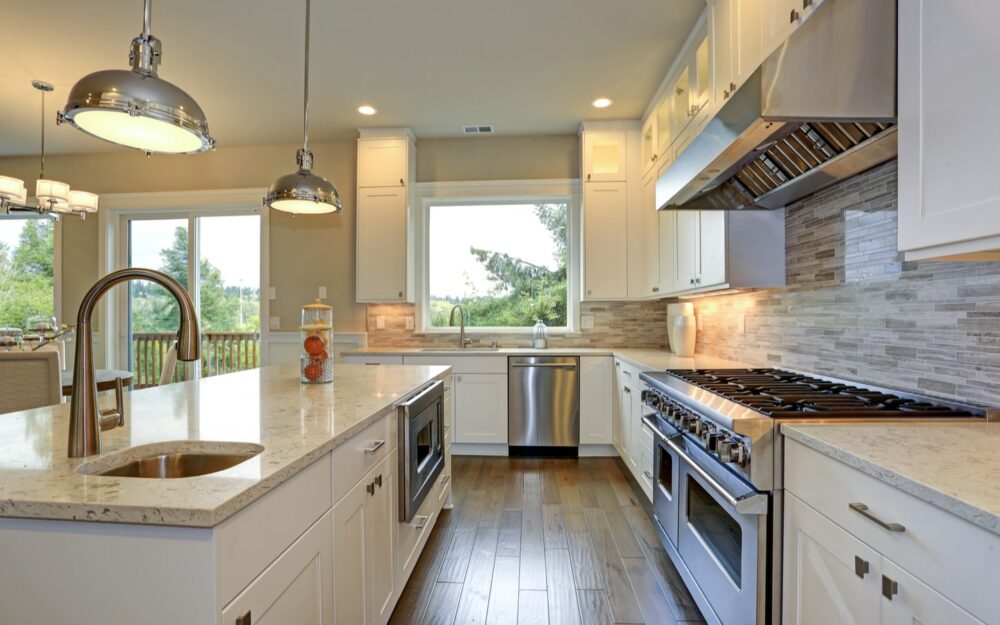
Home improvement projects can be an exciting way to breathe new life into your home. But it is important to consider how much money to budget for the project. Improving your home can cost anywhere from a few hundred to thousands of dollars depending on the project. Knowing how much you can afford to spend will help ensure your project is done in a cost effective manner. In this blog post, we will explore the cost of home improvements and how to determine the ideal budget for your project. We will discuss the factors that influence the cost of different projects and the best ways to cut costs when budgeting for home improvements. We will also provide some tips on how to save money and make sure you get the best value out of your project. By the end of this blog post, you should have a better understanding of the cost of home improvements and the steps you should take to ensure you are budgeting correctly.
- Determine Your Needs and Desires
Before you start your home improvement project, it’s important to determine what your needs and desires are. Think about what you need from the space – whether it’s a bigger kitchen, a guest bathroom, or a more spacious living area. Once you’ve identified your needs, you can begin to plan out your design and budget for the project. Consider your desired style and the amount of money you can afford to spend, and make sure that the two are compatible. You may even want to consult a professional for advice on how best to achieve the results you’re looking for.
- Research Average Costs of Home Improvements
Home improvements can be costly, but with the right research and planning, you can get a better idea of how much you should expect to pay. One of the most important steps in planning your home improvement project is to do some research on the average costs of the type of renovation you’re interested in. This will give you an idea of the range of prices you’ll encounter in your search for the perfect contractor. It’s important to keep in mind that these are just averages, and the actual cost of your project may be more or less than the average depending on the scope of the job and the materials used.
- Consider the Resale Value of Your Home
When it comes to home improvements, it’s important to consider the resale value of your home. If you plan to sell your home in the future, it’s important to consider how certain improvements will affect the value of your home. Investing in improvements that add real value to your home, like renovating the kitchen or adding a new bathroom, will ultimately raise the value of your home. On the other hand, making improvements that are too personal, such as installing a custom pool or adding a large deck, may not increase the value of your home. Doing your research and talking to a real estate agent can help you make the best decisions for your home.
- Set a Realistic Budget
Setting a realistic budget is key when planning a home improvement project. It’s important to consider not just the cost of materials and labour, but also the cost of any new furniture, appliances and decor that you may need for your project. Make sure to factor in any additional fees for permits or inspections, as well. When setting your budget, remember to leave a little room for unexpected costs that may arise during the project. It’s also wise to set aside some money for any necessary repairs that may come up after the project is completed.
- Shop Around for the Best Prices
Before making any home improvement purchases, it’s important to shop around for the best prices. With the internet, it’s now easier than ever to compare prices on different websites or in different stores. You can even compare the costs of hiring a contractor versus doing the work yourself. Additionally, don’t forget to look for deals and discounts. Checking for coupons or sales before making a purchase can save you a lot of money in the long run.
In conclusion, when it comes to home improvements, the right budgeting decisions can make a big difference. Before undertaking any project, it is important to do research on the estimated cost and factor in any potential costs to ensure the project does not put you in over your head financially. With a thorough understanding of the costs involved, you can properly plan and budget for your home improvement projects, allowing you to make the most of your hard-earned money.


